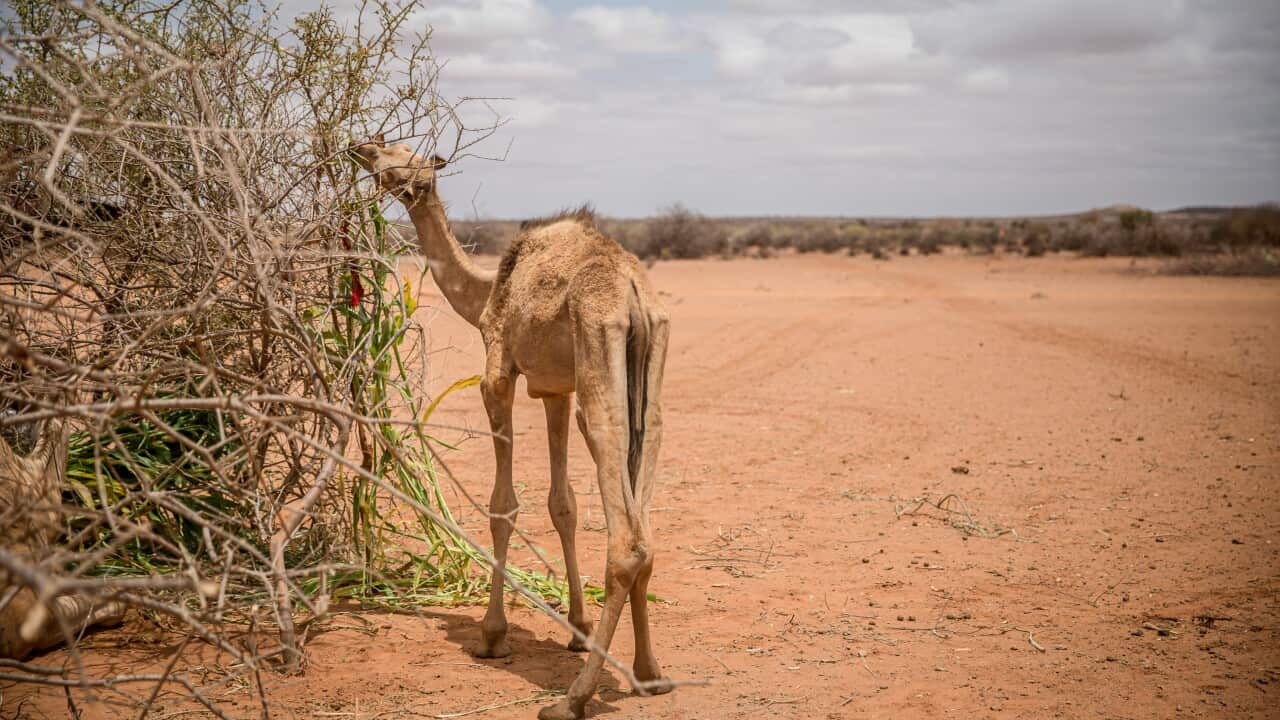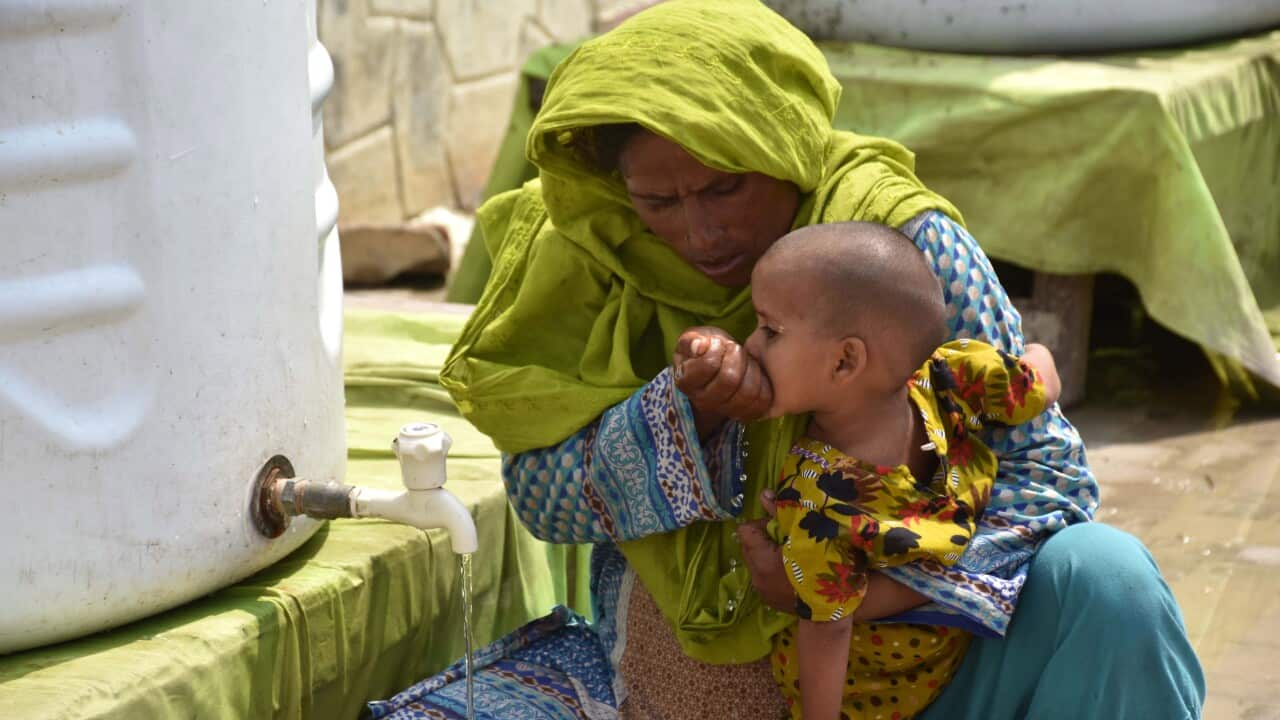Key Points
- Africa is heating up at a faster rate than the rest of the planet, according to a new report.
- The continent was hit by 80 extreme weather and climate hazards last year.
- The Horn of Africa experienced its worst drought in 40 years.
Africa is heating up at a faster rate than the rest of the planet and enduring more severe climate and weather disasters such as droughts, a joint UN-African Union report said on Monday, warning that climate change could stoke conflict over resources.
The continent was hit by 80 extreme weather and climate hazards last year, said the report released by the World Meteorological Organization (WMO) to coincide with Africa’s first climate summit in Kenya.
These disasters, such as the Horn of Africa’s worst drought in 40 years and Algerian wildfires, resulted in 5,000 deaths and over US$8.5 billion ($13.21 billion) in economic damage, the report showed, citing an emergencies database.

Source: SBS News
“Climate change and the diminishing natural resource base could fuel conflicts for scarce productive land, water, and pastures, where farmer-herder violence has increased over the past 10 years due to growing land pressure...,” the State of the Climate in Africa 2022 report said.
Already, communal violence over resources flares up frequently in parts of the semi-arid Sahel. On average, each African produced 1.04 tonnes of carbon dioxide emissions in 2021, less than a quarter of the global average.
The report said the average rate of warming in Africa was 0.3C per decade in the 1991-2022 period, compared with 0.2C in the world as a whole.
The warming has been fastest in North Africa which has been subject to multiple heatwaves since last year.
That contributed to a fall in cereal production to 33 million tonnes or about 10 per cent below the previous five-year average, the report said, although production in some other parts of the continent such as West Africa rose amid good rains.
Overall, the report said that agricultural productivity had fallen due to climate change, noting a decline of 34 per cent since 1961.

Source: SBS News
“Africa is responsible for less than 10 per cent of global greenhouse gas emissions. But it is the continent which is the least able to cope with the negative impacts of climate change.
"Heatwaves, heavy rains, floods, tropical cyclones, and prolonged droughts are having devastating impacts on communities and economies, with increasing numbers of people at risk,” WMO secretary-general professor Petteri Taalas said.
There are big gaps in weather observations in Africa and early warning services are "woefully inadequate," he said.
"We are determined to close those gaps and ensure that life-saving early warnings reach everyone.”











